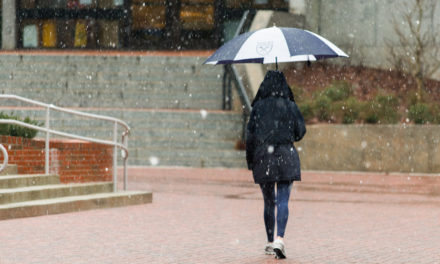
Ayushi Agarwal, Photo Editor
College Council (CC) passed Senior Legislator Justin Cohen’s (20C) Election Day resolution unanimously on Feb. 12, which would advocate for the creation of a University holiday on Election Day. CC, Oxford Student Government Association (SGA), Emory SGA and BBA Council have already passed resolutions in support of the initiative, and Cohen believes that the Graduate Student Government Association and Emory Student Nurses Association (ESNA) will pass resolutions this coming week.
The resolution claims that “the University administration does not provide for adequate resources to guarantee students, faculty, and staff access to the ballots.” Though not explicitly written in the resolution, Cohen said in an interview with the Wheel that his resolution aims to make Election Day a holiday in which classes and other scholastic activities would be cancelled.
“I like to think of it like a snow day; however, where snow days are unpredictable … and often times professors don’t like [them], … this is going to be planned,” Cohen said. “There would be no classes, … organization meetings … [or] obligations that would make it difficult for students to go and vote.”
Cohen’s resolution has been co-signed by over 29 student organizations around campus, including Hillel, Young Democrats of Emory and Emory Pride.
Over the past two weeks, Cohen has campaigned across the University’s student government organizations in hopes to garner broad support for his resolution. Cohen has shared his initiative with Emory SGA, the BBA Council, ESNA, Oxford SGA, Rollins SGA, the Graduate Business Association, the Student Bar Association, the Medical Student Senate and Candler Coordinating Council.
Additionally, Cohen penned a Feb. 13 letter that explains the purpose of the resolution: a method to improve accessibility to the polls.
“Not allowing students, as well as faculty and staff, full access to the ballots deprives them of their right and ability to use their voice against the issues they encounter,” Cohen wrote in a Feb 13. letter.
The letter, which explains the purpose of the resolution, addresses the fact that “issues such as climate change, LGBTQ+ rights, immigration, education, abortion and sexual assault are on the ballot nearly every November.” Though Cohen lauded Emory for reforming policies surrounding Title IX and advocating for immigration, he said that assisting students in voting is equally as important.
Though there is no definitive date, Cohen plans to send a letter to the Office of the President and other administrative offices sometime next week.
When asked about passing his bill before graduation, Cohen said that he had been given the idea for an Election Day holiday by Nicholas Lal (17B) during his freshman year of college.
“This is something that I think will happen eventually –– I hope it’s before November –– but we need to get the ball rolling now,” Cohen said.
CC Discusses Bill to Regulate Club Operational Budgets
CC Vice President of Finance Aditya Jhaveri’s (21C) bill to add concrete guidelines for student organization financial caps to the CC monetary policy received its first passing vote from the legislature, with 19 votes in favor, zero against and one abstaining.
The bill makes three changes to the monetary policy.
The first change only affects newly chartered student organizations during their first year of existence. The bill will cap club budgets at $1,000 and will grant a minimum of $100 dollars. According to Jhaveri, the minimum was based on the longstanding CC administrative policy that requires clubs to self-generate $100 before applying for funding.
“Because we don’t have infinite money, we can’t just fund every single thing that clubs apply for,” Jhaveri said during CC’s Feb. 5 general body meeting. “We have to limit how much we can fund clubs.”
The second change affects a club’s ability to increase their financial cap. Under Jhaveri’s bill, CC will raise a club’s financial cap up to the amount of funds which they are able to self-generate within their second year. If a club with a financial cap of $1,000 self-generates $1,500 in their second year, their financial cap will become $1,500.
Additionally, the bill would institute a $15,000 limit on how much CC can increase a club’s budget based on the funds that club self-generates within that second year.
“If a club self-generates $200,000, their financial cap does not grow to $200,000,” Jhaveri said. “It makes the most sense to have some limit, … to allow other organizations to still grow.”
The third change states that all clubs older than three years will keep their financial caps where their budget currently lies. These caps will increase by 1.5 percent every year to coincide with the recently amended Student Activity Fee.
Though these three differences are novel to CC’s monetary policy, challenging procedures like monetary policy overrides, which allow for clubs to request more money toward their operational budgets, and supplementary hearings will still take place under the renovated monetary policy.
Associate Editor | Tommy Kreutz (18Ox, 21C) is from Chicago, majoring in creative writing and political science. Tommy is a published poet, whose favorite poetic reads are "Sin" by Ai, "Cortége" by Carl Philips and "A Women of Poetry" by Robyn Schiff. In his free time, Tommy furthers his own stereotype by going around campus, espousing ill-informed tirades about politics, movies and sports, to no one in particular.





